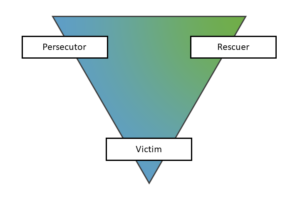
Supervision – paid to think
Reflective supervision is where you are paid to think, or it should be. “You are paid to think” said my old social work lecturer, “thats what your job is”. Unfortunately some social work cultures do not always encourage “thinking”. One Head of Service I knew used to bark “you are paid to do, not to think”. Over time the work became mechanical and unsafe. Ofsted graded that local authority Inadequate.
One of the challenges in social work is the semi professionalisation of the, well, profession. Social work isn’t in fact a true profession. At least not in the sense of medicine. Professionals essentially give their professional opinions, and who have a high degree of autonomy about how they exercise their specialist skills and knowledge. Doctors and lawyers are true professionals. Social workers, nurses and teachers are not.
Professional autonomy?
The difference? It is in the question of professional autonomy. Whilst GPs retain a large degree of autonomy, social workers and nurses do not. Both social workers, nurses and teachers work within a hierarchy, or bureaucracy which insists on “managing” their work. The government regulates and manages social work practice closely through statutory processes and procedures. Reflective supervision is as much to make sure that social workers don’t go off on a mad social work bender, as it is to help reflection, facilitate good decision making and support the worker.
This is why the Head of Service I quoted earlier, thought it might be a good idea for her social workers to know who was in charge. Unfortunately, that sort of message is completely unhelpful. It breeds a culture where social workers and team managers do not learn to reflect or develop the skills themselves to make good decisions, assess need or plan interventions. Even worse, it de-skills practitioners. But even worse still, despite telling everyone not to think, the same management culture often tends to lay the blame on the workers first when things go wrong.
Reflective learning cultures
We know that local authorities which perform well in inspections often build reflective learning cultures. This helps practitioners grow and develop the skills for their work. Practitioners think continually about what their work is achieving for children rather than slavishly follow procedures and processes. In these environments practitioners receive high challenge and high support. Whilst this isn’t the only thing that matters in providing good services for children, you can’t achieve good services unless you have built the right respectful learning culture with staff. And that starts by building a respectful culture that encourages practitioners to reflect continually on the work, and difference interventions are making for children. You need more than empathy and people skills to be a good social worker. You need above all to think.









Leave a Reply
Your email is safe with us.